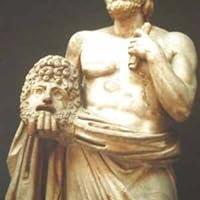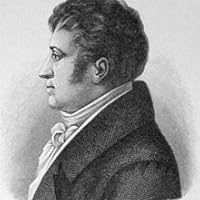Euripides Quotes
Quotes tagged as "euripides"
Showing 1-30 of 41

“ORESTES: Never shall I see you again.
ELECTRA: Nor I see myself in your eyes.
ORESTES: This, the last time I'll talk with you ever.
ELECTRA: O my homeland, goodbye. Goodbye to you, women of home.
ORESTES: Most loyal of sisters, do you leave now?
ELECTRA: I leave with tears blurring all that I see.”
― Electra
ELECTRA: Nor I see myself in your eyes.
ORESTES: This, the last time I'll talk with you ever.
ELECTRA: O my homeland, goodbye. Goodbye to you, women of home.
ORESTES: Most loyal of sisters, do you leave now?
ELECTRA: I leave with tears blurring all that I see.”
― Electra

“Yet censure strikes hard at women, while men, the true agents of trouble, hear no reproach.”
― Electra
― Electra

“Do we, holding that the gods exist, deceive ourselves with insubstantial dreams and lies, while random careless chance and change alone control the world?”
―
―

“I wish you joy. To spend life's fleeting days mid joy that never meets an evil hour is to be blessed beyond compare.”
― Electra
― Electra

“Give me a man, for his sons make courageous soldiers while pretty boys can only decorate the dance.”
― Electra
― Electra

“Truly we are creatures of labor and suffering, and nothing for long. Labor and suffering, and the plain sight of our destiny is the cruelest thing of all.”
― Iphigenia in Aulis
― Iphigenia in Aulis

“Bear witness for one who is loved and not loved: we cast the cloak gently around her, an end of great woe for our house.”
― Electra
― Electra

“The hounds snap fierce at your heels. Turn toward Athens. I hear them pelting hard on you, I see black flesh and snake-hands coiling round a fruit of agonizing pain.”
― Electra
― Electra

“If only the herdsman had not brought him up with the flocks, not reared him, Paris, Alexander, to watch his flock by the clear springs where the nymphs rise, and the rich pastures starred with roses and hyacinths for the goddesses to gather.”
― Iphigenia in Aulis
― Iphigenia in Aulis

“Again, again your mind has changed course with the wind. For you think now of godly things ignored when you worked dreadful deeds on your brother against his will.”
― Electra
― Electra

“The tragic style of Aeschylus (I use the word "style" in the sense it receives in sculpture, and not in the exclusive signification of the manner of writing,) is grand, severe, and not unfrequently hard: that of Sophocles is marked by the most finished symmetry and harmonious gracefulness: that of Euripides is soft and luxuriant; overflowing in his easy copiousness, he often sacrifices the general effect to brilliant passages. The analogies which the undisturbed development of the fine arts among the Greeks everywhere furnishes, will enable us, throughout to compare the epochs of tragic art with those of sculpture. Aeschylus is the Phidias of Tragedy, Sophocles her Polycletus, and Euripides her Lysippus. Phidias formed sublime images of the gods, but lent them an extrinsic magnificence of material, and surrounded their majestic repose with images of the most violent struggles in strong relief. Polycletus carried his art to perfection of proportion, and hence one of his statues was called the Standard of Beauty. Lysippus distinguished himself by the fire of his works; but in his time Sculpture had deviated from its original destination, and was much more desirous of expressing the charm of motion and life than of adhering to ideality of form.”
― Lectures on Dramatic Art and Literature
― Lectures on Dramatic Art and Literature

“Apollo, Apollo—but he is my lord. I will keep silence. He is wise forever, though his oracle spoke brutal words. We are bound to acquiesce. And you must do now as Fate and Zeus ordain.”
― Electra
― Electra

“Euripides, however, has drawn Fate down from the region of the infinite; and with him inevitable necessity not unfrequently degenerates into the caprice of chance. Accordingly, he can no longer apply it to its proper purpose, namely, by contrast with it, to heighten the moral liberty of man. How few of his pieces turn upon a steadfast resistance to the decrees of fate, or an equally heroic submission to them! His characters generally suffer because they must, and not because they will.”
― Lectures on Dramatic Art and Literature
― Lectures on Dramatic Art and Literature

“Apollo, your voice hymned a justice I could not see clear, but all too clear the anguish you caused, the bloodhaunted, homeless future you've doled out.”
― Electra
― Electra

“The other strikingly modern feature of the type of poet which Euripides now introduced into the history of literature is his apparently voluntary refusal to take any part whatever in public life. Euripides was not a soldier as Aeschylus was, nor a priestly dignitary as Sophocles was, but, on the other hand, he is the very first poet who is reported to have possessed a library, and he appears to be also the first poet to lead the life of a scholar in complete retirement from the world. If the bust of him, with its tousled hair, its tired eyes and the embittered lines round the mouth, is a true portrait, and if we are right in seeing in it a discrepancy between body and spirit, and the expression of a restless and dissatisfied life, then we may say that Euripides was the first unhappy poet, the first whose poetry brought him suffering. The notion of genius in the modern sense is not merely completely strange to the ancient world; its poets and artists have nothing of the genius about them. The rational and craftsmanlike elements in art are far more important for them than the irrational and intuitive. Plato’s doctrine of enthusiasm emphasized, indeed, that poets owed their work to divine inspiration and not to mere technical ability, but this idea by no means leads to the exaltation of the poet; it only increases the gulf between him and his work, and makes of him a mere instrument of the divine purpose. It is, however, of the essence of the modern notion of genius that there is no gulf between the artist and his work, or, if such a gulf is admitted, that the genius is far greater than any of his works and can never be adequately expressed in them. So genius connotes for us a tragic loneliness and inability to make itself fully understood. But the ancient world knows nothing of this or of the other tragic feature of the modern artist—his lack of recognition by his own contemporaries and his despairing appeals to a remote posterity. There is not a trace of all this—at least before Euripides. Euripides’ lack of success was mainly due to the fact that there was nothing in classical times that could be called an educated middle class. The old aristocracy took no pleasure in his plays, owing to their different outlook on life, and the new bourgeois public could not enjoy them either, owing to its lack of education. With his philosophical radicalism, Euripides is a unique pheno menon, even among the poets of his age, for these are in general as conservative in their outlook as were those of the classical age —in spite of a naturalism of style which was derived from the urban and commercial society they lived in, and which had reached a point at which it was really incompatible with political conservatism. As politicians and partisans these poets hold to their conservative doctrines, but as artists they are swept along in the progressive stream of their times. This inner contradiction in their work is a completely new phenomenon in the social history of art.”
― The Social History of Art, Volume 1: From Prehistoric Times to the Middle Ages
― The Social History of Art, Volume 1: From Prehistoric Times to the Middle Ages

“It jars me. I remain in control but groping, grappling, wrestling with how to think of it. Here's one way. All those years, all those Labours, I'm living a completely socialist existence. The Labours have to be done and that is that. The Labours tell me when to go to bed, what to eat, what to wear, who to kill and what next. Then I come up from hell, Labours done and they say, Magic! Two o'clock today you are a capitalist! Figure it out! I find no assistance only degradation. I know no rules. I am assigned a therapist who tells me I'm fine. I watch myself become debased, hateful, resentful, mean, I yell all the time. You think psychopathy has nothing to do with the capitalist system? You're wrong. Capitalism farts cruelty like gas from a lawnmower.”
― H of H Playbook
― H of H Playbook

“نیکبختی هیچ میرایی پایدار نیست. اگر بخت یار باشد، شاید که دارایی تو از همسایهات بیشتر باشد، اما هرگز از او نیکبختتر نیستی.”
― Medea
― Medea

“No, child, you’re wrong. They’re not the same. Life means hope, death is nothing at all.”
― The Trojan Women
― The Trojan Women
“Θνητῶν δέ μωρός ὅστις εὖ πράσσειν δοκῶν βέβαια χαίρει· τοῖς τρόποις γάρ αἱ τύχαι, ἔμπληκτος ὡς ἄνθρωπος, ἄλλοτ' ἄλλοσε πηδῶσι, κουδείς αὐτός εὐτυχεῖ ποτέ.”
―
―
All Quotes
|
My Quotes
|
Add A Quote
Browse By Tag
- Love Quotes 97.5k
- Life Quotes 76k
- Inspirational Quotes 73k
- Humor Quotes 44k
- Philosophy Quotes 29.5k
- Inspirational Quotes Quotes 27k
- God Quotes 26k
- Truth Quotes 23.5k
- Wisdom Quotes 23.5k
- Romance Quotes 23k
- Poetry Quotes 22k
- Death Quotes 20k
- Happiness Quotes 18.5k
- Life Lessons Quotes 18.5k
- Hope Quotes 18k
- Faith Quotes 18k
- Quotes Quotes 16.5k
- Inspiration Quotes 16.5k
- Spirituality Quotes 15k
- Religion Quotes 15k
- Motivational Quotes 15k
- Writing Quotes 15k
- Relationships Quotes 14.5k
- Life Quotes Quotes 14k
- Love Quotes Quotes 14k
- Success Quotes 13.5k
- Time Quotes 12.5k
- Motivation Quotes 12k
- Science Quotes 11.5k
- Motivational Quotes Quotes 11.5k

